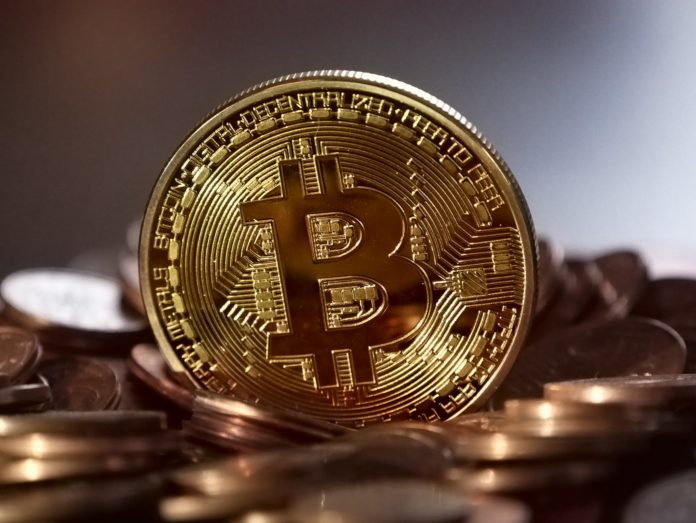- Bitcoin
- Ethereum
- Ripple
- Bitcoin Cash
- Litecoin
What is Bitcoin?
The simplest definition of Bitcoin is that it is digital currency. Although digital currencies have existed in the past as fiat or centralised currencies, being controlled by a central authority, the Bitcoin protocol has created its own authority as a de-centralised currency. Bitcoin began as philosophy towards what money is and became a digital representation of monetary value working in a real-world system.
Bitcoin is also described as a cryptocurrency. Cryptocurrency is digital currency that uses cryptography to verify transactions. Transactions made with Bitcoin are held on an immutable, digital ledger, known as Blockchain. This blockchain technology has a full record of all of the transactions that have occurred with the digital tokens.
Bitcoin has advantages over traditional currency transactions. Traditional banking maintains centralised control, where they can (and do!) change the supply of money and also control which participants can actually access the financial system.
Bitcoin was designed as a trust-less and decentralised
One of the most significant features of this digital currency is that, like physical cash, the identification of the person is not necessary to transact with them. And, this has created concerns for governance and regulation of bitcoin as its relevance continues to grow in the greater financial system.
Since inception of bitcoin and the validation of blockchain technology, other cryptocurrencies have been created to fulfil other roles in the digital transactional economy.
What is Ethereum?
Ethereum is a decentralised smart contracts platform. The Ethereum protocol, with its collection of Ethereum tokens and de-centralised computing network allow for the platforms Ethereum Virtual Machine (EVM). The EVM executes Turing-complete scripts through a global network of computing power to allow the creation of decentralised applications. The protocol was led by Vitalik Buterins’ release of its whitepaper in 2013 and its founders include Anthony Di Lorio, Charles Hoskinson, Mihai Alisie, Amir Chetrit, Joseph Lubin, Gavin Wood and Jeffrey Wilke.
In plain English, this means that having and using Ethereum is like having access to a powerful network of computers that are independent to the control of any entity. The network can execute a super-national, super-government computing application to solve problems of security, privacy, corruption, regulation, finance and governance, amongst many others.
Given its broad scope and impressive mandate, the Ethereum project has attracted a huge number of resources in funds as well as business and non-profit institutions specifically setup to develop the potential of the protocol, the most significant being ConsenSys.
Although the idea is in its infancy, it allows revolutionary ways of looking at many aspects of the modern world. Obvious use-cases are in finance, politics, law, gov
Competitor protocols exist in Cardano, Stellar, NEM, Hyperledger Fabric and Algorand. Ethereum V2 is expected in 2021 and will see the protocol move from a proof of work consensus mechanism to proof of stake and the implementation of sharding (a technique that will allow the Ethereum network to ‘scale’ via processing more transactions per second).
What is Ripple?
Ripple is a platform and a cryptocurrency that has been designed to allow cheap and fast transactions worldwide. The objective of the Ripple network is to challenge SWIFT (current international payment system) and achieve dominance as a channel to facilitate the movement of funds between global institutions. Ripple attempts to achieve this with its own patented technology, the Ripple protocol consensus algorithm (RPCA). This consensus algorithm of ‘validator nodes’ means that there must be consensus amongst the nodes that a transaction is legitimate. If a node attempts to pass illegitimate transactions, then it is a bad actor node and is penalised in participation.
Compared to other cryptocurrencies, Ripple is more centralised, leading to criticism that it is not a cryptocurrency at all. However, like everything else in this space, there are novel additions to the Ripple platform. What the system is, how it compares to other things and whether it not it truly performs the tasks it claims to perform is a hard question to answer in heady conditions.
What is Litecoin?
Developed in 2011 by Charles Lee, Litecoin is a cryptocurrency that focuses on the ability to perform transactions efficient
As a transaction focused crypto currency, the value of the protocol is seen to be dependent on its use in transactions. Litecoins’ future will be decided in this marketplace of transactional cryptocurrencies where it is competition with Bitcoin Cash and Ripple as well as Dash, Dogecoin and other transactional cryptocurrencies.
What is Bitcoin Cash?
Bitcoin Cash is a cryptocurrency protocol focusing on transactions, championed as ‘the real’ Bitcoin by its promoters, who originally included Roger Ver, Jihan Wu, Craig Wright and Calvin Ayre.
This breakaway group had differences of opinion over the structure of the Bitcoin protocol, wanting to promote scalability for higher transaction speed and lower cost in the way that they perceived the original Bitcoin ideal. One way of looking at the two assets is to see Bitcoin as retaining higher-level conceptual features and of Bitcoin Cash to focus on application and function of the idea.
These differences have led to Bitcoin Cash having some uptake as a method of transaction and being actively promoted by sites such as https://marcocoino.bitcoin.


















